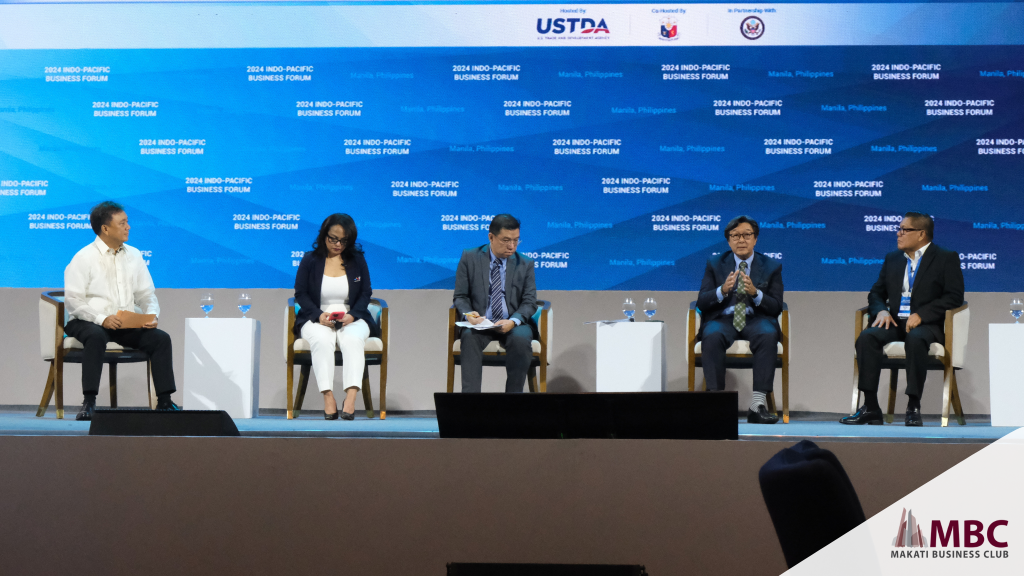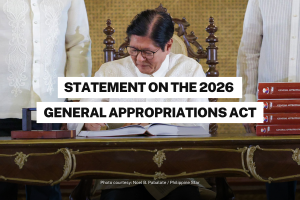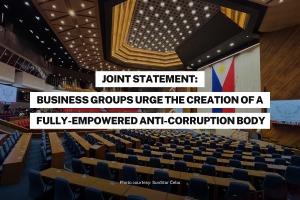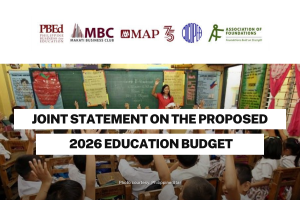Philippines’ Role in Supply Chain Resiliency

23 May 2024 – On May 21, the 6th Indo Pacific Business Forum (IPBF) ,was hosted by the Philippines for the first timeThe IPBF is a US government initiative which brings together the 14 Indo Pacific Economic Framework (IPEF) for Prosperity member countries to talk about advancing resilience, sustainability, inclusiveness, economic growth, fairness, and competitiveness for their economies. The IPEF has four pillars: (1) Trade; (2) Supply Chains; (3) Clean Energy, Decarbonization, and Infrastructure; and (4) Tax and Anti-Corruption.
During the Forum, the Makati Business Club was privileged to partner with the US Embassy in the Philippines to convene a panel of industry and policy experts on the area of supply chain resiliency for the semiconductor and electronics sector and the critical minerals sector. The two sectors are probably one of the most strategic sectors today as they are essential enablers of decarbonization which is an integral part of various technologies in renewable energy, electric mobility, energy storage and the many other current and nascent solutions.
One of the main topics brought up during the forum is how IPEF seeks to strengthen supply chains and ensure resilience especially after the COVID-19 crisis health crisis and external conflicts such as the Ukraine-Russia conflict which have significantly changed trade patterns across the world. Through the IPEF, we hope that new and emerging supply chains will provide the needed diversity that enables more countries to participate in these critical value chains.
The Philippines has a unique opportunity to be participating in both the semiconductor and electronic sector and the critical minerals sector. Since the 1970s, the Philippines has long demonstrated its ability to continuously operate and deliver throughout the numerous supply chain interruptions and crises. This was recently proven during the COVID-19 pandemic where government and private sector collaborated to prevent and minimize production and supply interruptions. The Philippines has one of the highest ratios of hi-tech exports, with semiconductor and electronics representing nearly half of total goods exports every year. The sector is also responsible for nearly 3 million direct and indirect employment in the Philippines, employing highly skilled talent.
The long-standing collaboration between industry and the Philippine Export Zone Authority have resulted in an enabling business environment resulting in long term growth. Technical Education and Skills Authority (TESDA) has partnered with industry to continuously generate additional talent. But more can be achieved. We’ve seen how Vietnam has dramatically increased their electronics sector in less than a decade. Malaysia has doubled their hi-tech exports in the same period. We may be at another inflection point in technology where IPEF countries can create a more inclusive and resilient supply chain.
The Philippines is also one of the few countries, together with Australia and Indonesia that provides critical minerals. Over 50% of nickel ores come from these countries. Copper, nickel, cobalt and many other materials that are needed in decarbonization are available in the country. With increased
Given these,how can the Philippines continue and improve its reliability in new supply chains that are being built and at the same time climb the value chain and create value-added products from raw materials? We need to sustainably harness the natural endowment of IPEF member countries to create a more diversified, prosperous, and reliable supply chain to enable more countries to generate more products and technologies to reach our much-needed decarbonization goals.
One of the early developments from IPEF collaboration was announced by US Vice President Kamala Harris in 2022, a USTDA grant for a feasibility study to enable Filipino company Eramen Minerals to refine nickel for electric vehicles, while meeting sustainability standards suited for the long term development of this industry. In semiconductor and electronics a five year USAID project on the advanced manufacturing workforce development called AMDEV is in its 2nd year of implementation. Last month US Trade Secretary Gina Raimondo led the first Presidential Trade Mission to the Philippines with a combined investment commitment of US$ 1 billion dollars.
We hope that the IPEF helps the Philippines and other member countries gain a firm foothold in the global supply chain of both the semiconductor, electronics and critical mineral sector, enabling member countries to climb the value chain, provide high-value employment leading to long term sustainable development and prosperity.
Bobby Batungbacal is the executive director of the Makati Business Club.
Business Matters is a project of the Makati Business Club with the Philippine Inquirer.
This article was published as a Business Matters column last May 23 on the Philippine Inquirer.

Statement on the 2026 General Appropriations Act
Statement on the 2026 General Appropriations Act 05 January 2026 – The 2026 General Appropriations Act, signed today by the President, represents an improvement compared

Joint Statement: Business Groups Urge the Creation of a Fully-Empowered Anti-Corruption Body
Joint Statement Business Groups Urge the Creation of a Fully-Empowered Anti-Corruption Body 10 December 2025 – We, the undersigned Philippine Business Groups, respectfully convey our

Joint Statement on the Proposed 2026 Education Budget
Joint Statement on the Proposed 2026 Education Budget 27 November 2025 – The private sector backs Congress’ efforts to move closer to global benchmarks for
